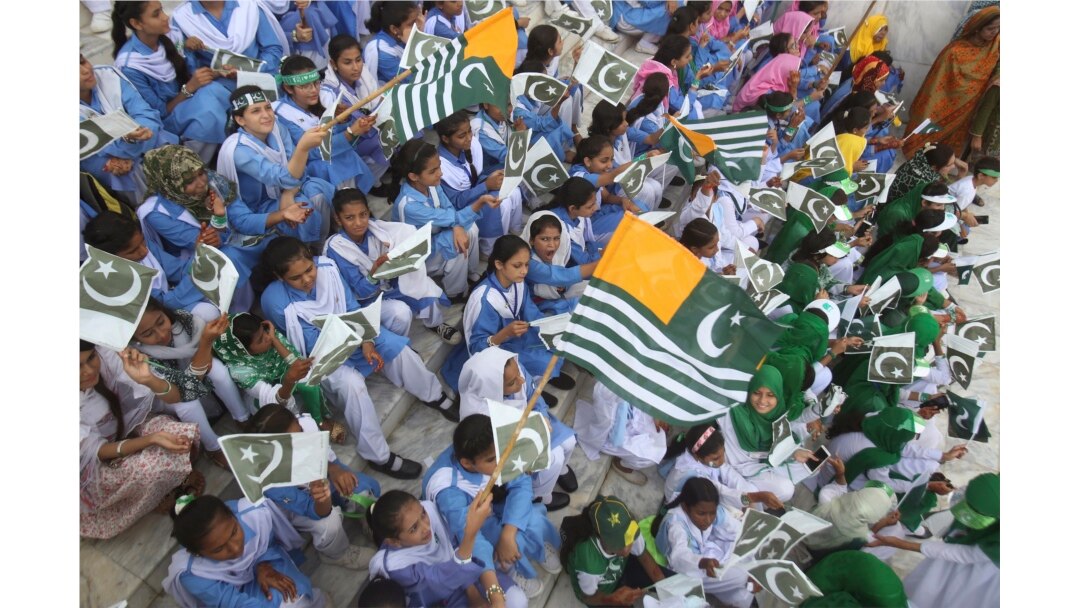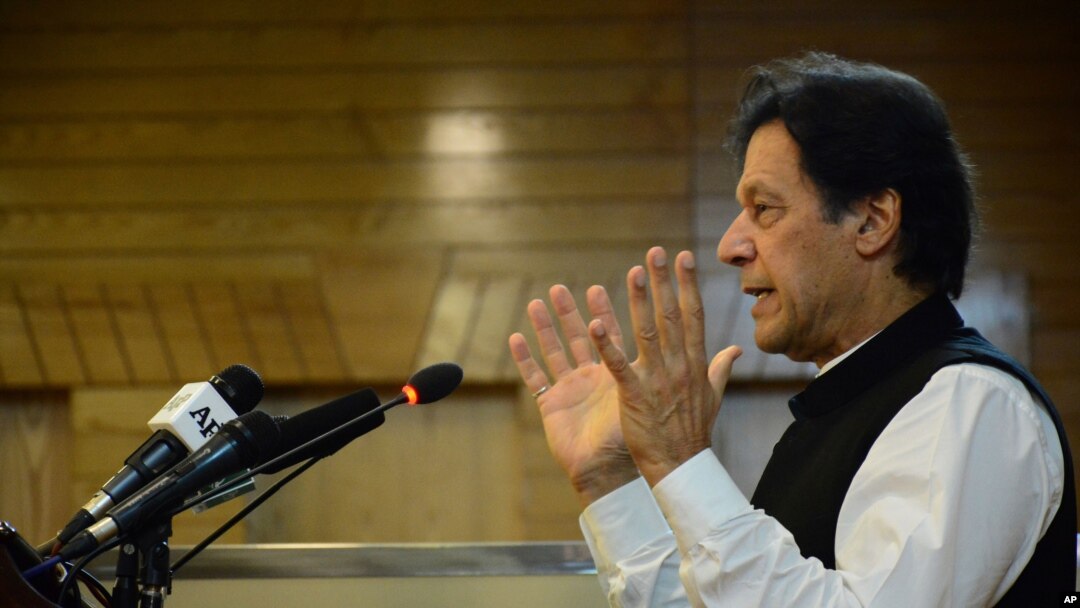Pakistan Prime Minister Imran Khan warned Wednesday rival India is planning a major cross-border military attack “to divert world attention” from its recent crippling crackdown in its part of the disputed Kashmir region.
Khan issued the warning Wednesday in a nationally televised address in connection with Pakistan’s Independence Day celebrations. It came more than a week after New Delhi abruptly dissolved the semi-autonomous constitutional status for Indian-administered section of the Muslim-majority Himalayan region.
The Indian move was accompanied with the deployment of tens of thousands of additional troops to the region, a communication blackout, and the house arrest of hundreds of Kashmiri political leaders to quell widespread violent reaction.
Khan while delivering his speech from the legislative assembly of the Pakistani-administered part of the disputed region, known as Azad (Independent) Kashmir, alleged that Indian security measures were meant to intensify “atrocities and abuses” against Kashmiris who are agitating the scraping of their autonomy.
“We have credible information that in order to divert world attention from those measures in occupied Kashmir, they [Indians] have now prepared a plan to launch a massive military action in Azad Kashmir,” Khan said. “My message to [Indian Prime Minister] Narendra Modi from this platform is that we will retaliate in a befitting manner to whatever action you are preparing to undertake… The time has come where we will teach you a lesson."

Pakistani students wave Pakistani and Kashmiri flags at the mausoleum of Muhammad Ali Jinnah, founder of Pakistan, to celebrate the Independence Day in Karachi, Pakistan, Aug. 14, 2019.
Islamabad already has expelled the Indian high commissioner to Pakistan, and has suspended all bilateral trade and public transport links in response to new Delhi’s August 5 decision.
The ensuing developments have significantly escalated tensions between India and Pakistan, and they have twice gone to full scale wars over Kashmir since gaining independence from Britain in 1947. The countries lately have armed their respective militaries with nuclear weapons and have come close to a war over the territorial dispute in February.
Indian paramilitary soldiers stand guard during a security lockdown in Srinagar, Indian-controlled Kashmir, Aug. 12, 2019.
Prime Minister Modi's government has defended the scrapping of Kashmir's special provisions, saying they restricted investment and economic growth. The move, one of Modi’s key campaign promises, has divided the region into two parts to be directly governed by the federal government.
The elimination of the autonomy blocks Kashmir’s right to frame its own laws and allows non-residents from elsewhere in India to buy property there. Critics fear it could lead to undermining of the Muslim majority in the area.
Khan slammed Modi and his Hindu-nationalist Bharatiya Janata Party (BJP), alleging their Hindu nationalist ideology was inspired by Nazi ideology. "Modi has committed a strategic blunder. They have internationalized the Kashmir issue,” he said.
On Tuesday, Pakistan asked the U.N. Security Council to convene an urgent session to discuss India’s Kashmir-related “illegal" steps.
“Pakistan will not provoke a conflict. But India should not mistake our restraint for weakness," Qureshi wrote.
He said China has promised to support the move and “watch over our interest” at the 15-member U.N. council.
Foreign Minister Jacek Czaputowicz of Poland, which is president of the Security Council for August, confirmed to reporters Tuesday at the U.N. that the council has received a letter from Pakistan and "will discuss that issue and take a proper decision.”
The security restrictions in Indian Kashmir are expected to remain in place at least through Thursday when India celebrates its Independence Day.
The Pakistan government has vowed to observe India’s Independence Day as a “Black Day,” with flags on government buildings flown at half mast to protest against Indian actions in Kashmir.
The U.N. Security Council adopted several resolutions in 1948 and in the 1950s on the Kashmir dispute, calling for a plebiscite to be held to allow the majority Muslim region to determine their future.
One of the resolutions also calls upon India and Pakistan to "refrain from making any statements and from doing or causing to be done or permitting any acts that might aggravate the situation.”
India has declared revocation of Kashmir’s autonomy as an "internal matter" and insists bilateral agreements with Pakistan since 1972 have blocked third party intervention in resolving the dispute.


